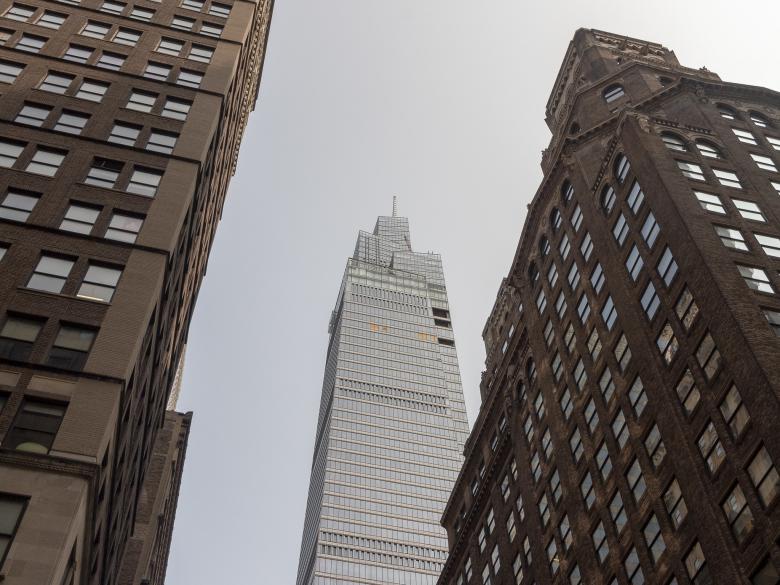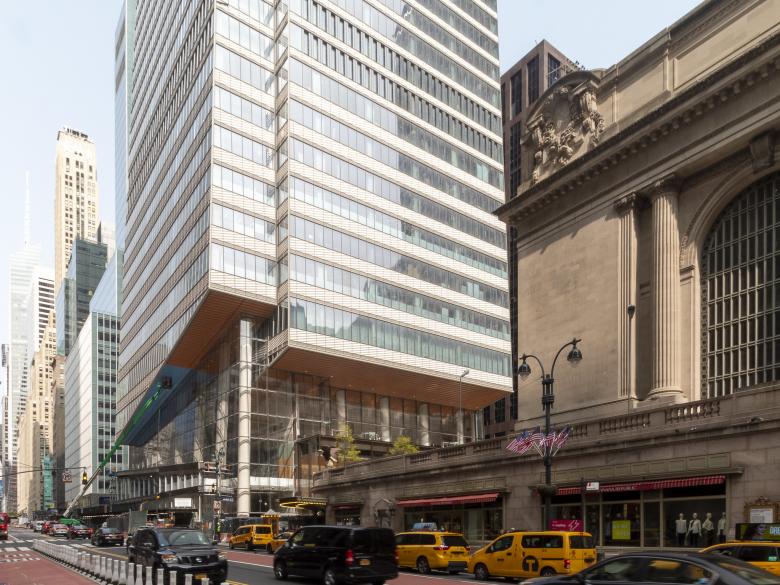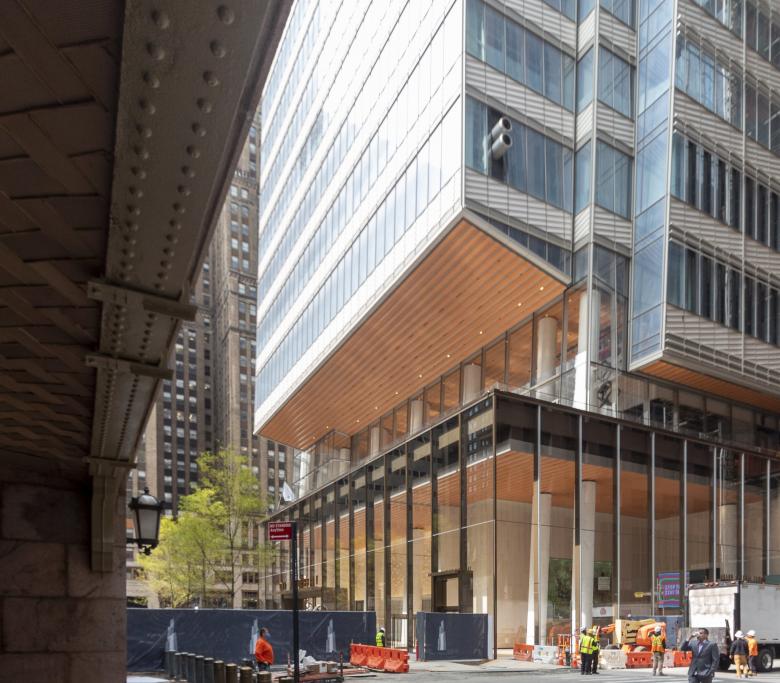One Vanderbilt Opens
On September 14, developers SL Green and Hines, with architecture firm Kohn Pedersen Fox, cut the ribbon on One Vanderbilt, which at 1,401 feet (427m) is the tallest office building in Midtown Manhattan.
The timing of the supertall tower's official opening is an odd one, considering One Vanderbilt received a temporary certificate of occupancy on September 11, the skyscraper is still visibly under construction, and it is welcoming office tenants in the midst of a pandemic that has left most white-collar workers — the majority of employees in Midtown — working from home. Nevertheless, the opening of the 77-story tower after four years of construction is receiving a fair amount of attention as some bright news at a time when most news in New York City and elsewhere is considerably bleak.
The tower is notable for its tapering form that taps into the history of such towers as the Chrysler Building, which sits just two blocks away along 42nd Street, but also for being the first project completed in the East Midtown Rezoning that the city approved in 2017. Anchored by Grand Central Terminal, the rezoning aims at providing new office development in an area with many aging office buildings from last century. One Vanderbilt necessitated the demolition of an 18-story building designed by Warren & Wetmore in 1912, when the same architects were designing Grand Central, but the rezoning also paved the way for the more controversial demolition of 270 Park Avenue, a 52-story tower designed by Skidmore, Owings & Merrill in the early 1960s.
One Vanderbilt provides 1.7 million square feet of Class-A office space — just what the rezoning was targeting — but it also offers public amenities that are more substantial than most private developments in Manhattan. At grade is a 14,000-square-foot public plaza formed by closing Vanderbilt Avenue between 42nd and 43rd Streets. This plaza was the site of the ribbon cutting attended by Mayor Bill de Blasio yesterday, but when I walked by this morning the plaza was closed behind construction fencing. Also not yet open to the public is the direct subterranean connection between One Vanderbilt and Grand Central, which will alleviate some of the bottlenecks of pedestrian traffic entering Grand Central during rush hour — it will, at least, once the number of Midtown office workers returns to its pre-pandemic state.





